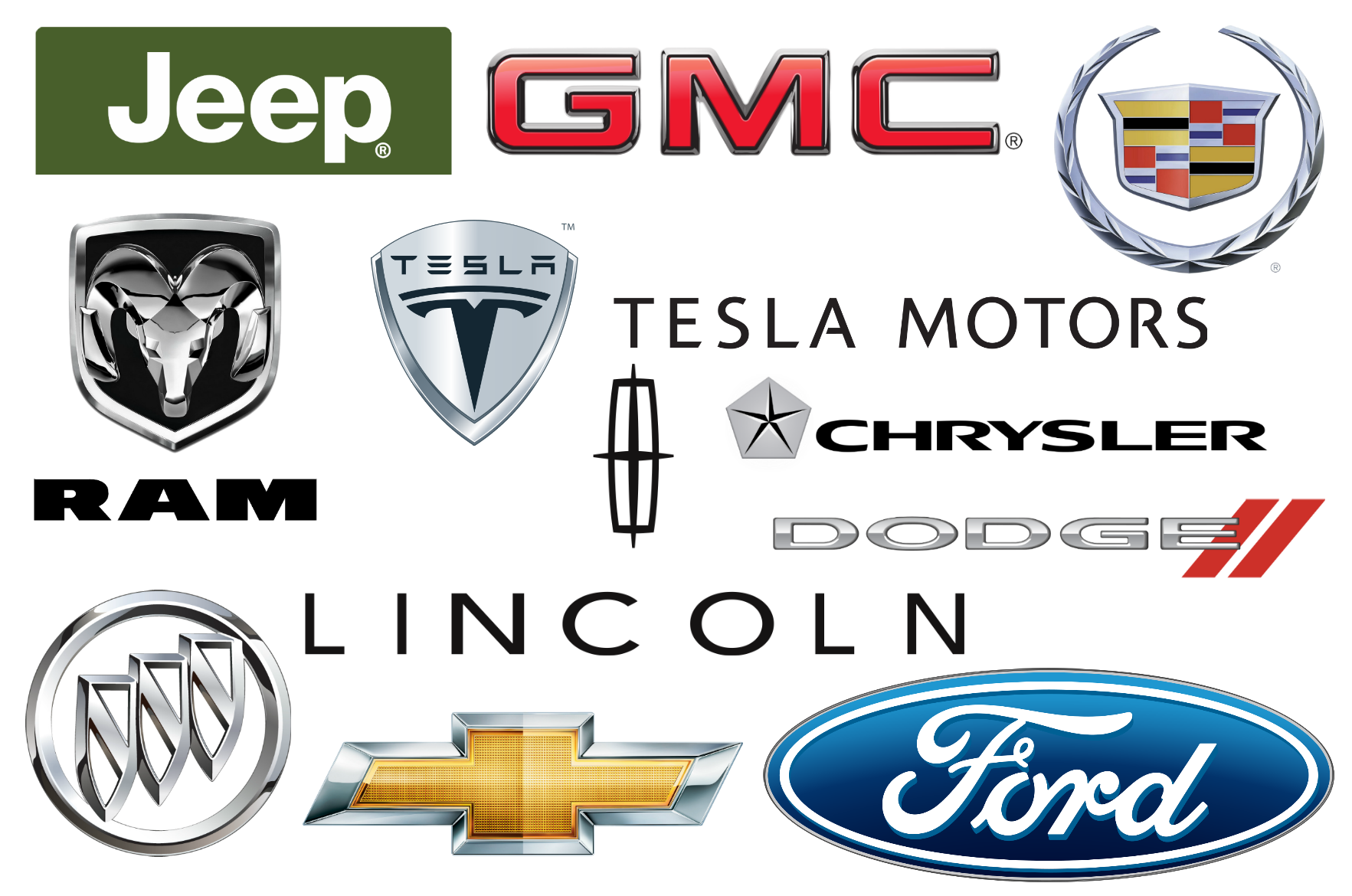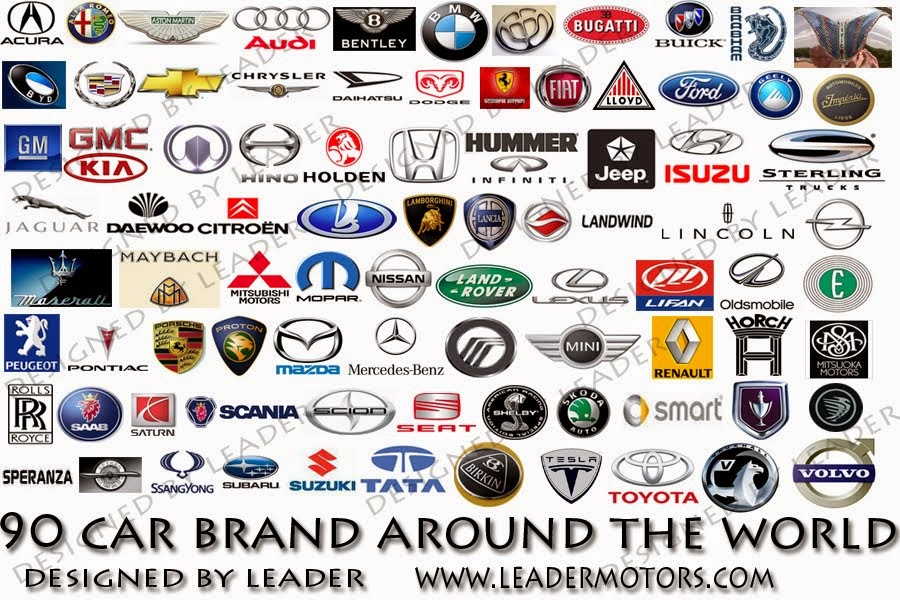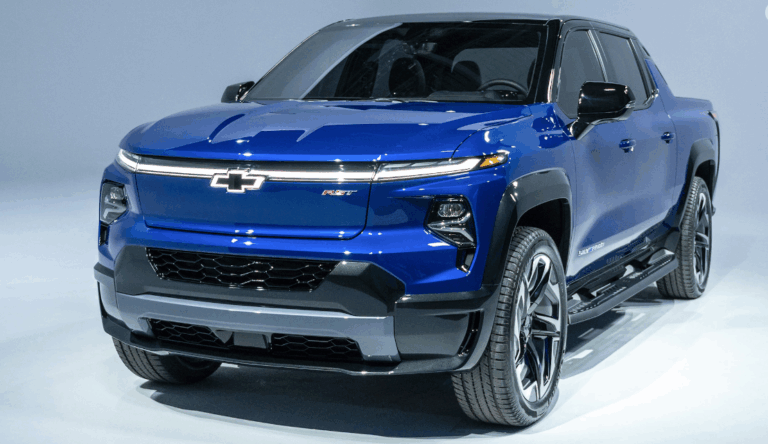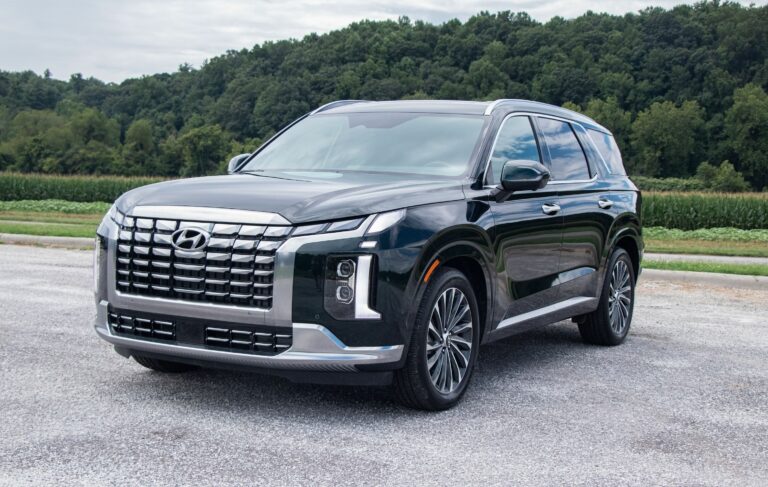American Car Brands: A Comprehensive Guide to Automotive Innovation and Legacy
American Car Brands: A Comprehensive Guide to Automotive Innovation and Legacy cars.truckstrend.com
The roar of a powerful engine, the sleek lines of a classic sedan, the rugged capability of a pickup truck traversing challenging terrain – these images often evoke the spirit of American car brands. More than just manufacturers of vehicles, these companies have been the architects of mobility, shaping the American landscape and influencing global automotive trends for over a century. From the revolutionary assembly lines of Ford to the luxurious comfort of Cadillac and the electric innovation of Tesla, American car brands represent a unique blend of history, innovation, and a deep understanding of the American consumer’s needs and aspirations.
This article delves into the rich tapestry of American automotive brands, exploring their origins, their current offerings, what sets them apart, and what the future holds for these iconic names. Whether you’re a seasoned enthusiast, a prospective buyer, or simply curious about the backbone of American industry, understanding these brands offers a fascinating glimpse into a legacy of power, practicality, and pioneering spirit.
American Car Brands: A Comprehensive Guide to Automotive Innovation and Legacy
The Enduring Legacy: A Brief History of American Automaking
The story of American car brands begins at the dawn of the 20th century, a period marked by rapid industrialization and visionary entrepreneurs. Henry Ford’s introduction of the Model T in 1908, combined with the revolutionary moving assembly line, democratized automobile ownership, transforming cars from luxury items into accessible necessities. This innovation laid the groundwork for mass production and set the stage for America to become the world’s leading automotive power.
The early 20th century saw the rise of the "Big Three": Ford Motor Company, General Motors (GM), and Chrysler Corporation. These giants competed fiercely, driving innovation in design, engineering, and manufacturing. The post-World War II era ushered in an age of prosperity and burgeoning suburbanization, leading to a demand for larger, more powerful, and stylish vehicles. This period saw the birth of iconic muscle cars, spacious sedans, and the foundational development of the American pickup truck as a versatile workhorse.
However, the 1970s and 80s brought challenges, including oil crises and increased competition from fuel-efficient foreign imports. American car brands had to adapt, focusing on smaller, more efficient vehicles and improving quality. The late 20th and early 21st centuries witnessed a resurgence, particularly in the truck and SUV segments, where American brands continued to dominate. Today, American automakers are at the forefront of the electric vehicle (EV) revolution and autonomous driving technology, once again redefining the future of personal transportation.
Key Players: Iconic American Car Brands Today
While the landscape has evolved, a core group of American brands continues to lead the industry, each with its distinct identity and market focus.
General Motors (GM)
GM, one of the largest automotive manufacturers globally, boasts a diverse portfolio of American brands:

- Chevrolet: Often considered the quintessential American brand, Chevrolet offers a vast range of vehicles from compact cars and family SUVs to legendary sports cars like the Corvette and Silverado pickup trucks, a perennial bestseller. Chevy is known for its broad appeal, reliability, and value.
- GMC: Positioned slightly more upscale than Chevrolet, GMC specializes in trucks and SUVs, offering premium features and designs while maintaining robust capability. Models like the Sierra pickup and Yukon SUV are hallmarks of the brand.
- Cadillac: America’s luxury marque, Cadillac has a long history of elegant design and innovative technology. Today, it combines sophisticated styling with powerful performance and advanced features, including the Lyriq EV, signaling its future direction.
- Buick: Occupying a "near-luxury" space, Buick focuses on comfortable, quiet rides and refined interiors. Its lineup primarily consists of SUVs, appealing to buyers seeking accessible premium features and a smooth driving experience.

Ford Motor Company
Ford remains a powerhouse, driven by innovation and a commitment to utility:
- Ford: The brand that put the world on wheels continues to innovate. Ford is renowned for its segment-leading F-Series pickup trucks, the iconic Mustang sports car, and a growing lineup of successful SUVs. Ford is also a major player in the EV market with models like the F-150 Lightning and Mustang Mach-E.
- Lincoln: Ford’s luxury division, Lincoln, offers a refined American luxury experience. With an emphasis on serene interiors, intuitive technology, and elegant design, Lincoln models like the Navigator SUV and Corsair provide a comfortable and sophisticated ride.

Stellantis (North America)
Formed from the merger of Fiat Chrysler Automobiles and PSA Group, Stellantis houses several key American brands:
- Chrysler: With a storied past, Chrysler today focuses on family-friendly vehicles, most notably the Pacifica minivan, which continues to set benchmarks in its segment for versatility and features.
- Dodge: Synonymous with performance, Dodge is known for its muscle cars like the Challenger and Charger, as well as powerful SUVs like the Durango. The brand embodies a bold, high-horsepower American spirit.
- Jeep: Perhaps the most iconic American brand for off-road capability and adventure, Jeep offers a range of SUVs and trucks designed for rugged terrains and outdoor lifestyles. The Wrangler and Grand Cherokee are global icons.
- Ram: Spun off from Dodge, Ram is a dedicated truck brand known for its powerful engines, luxurious interiors (especially in higher trims), and strong towing capabilities. Ram trucks are consistently among the best-selling vehicles in North America.
Tesla
A true disruptor, Tesla has revolutionized the automotive industry with its focus on electric vehicles:
- Tesla: Founded in 2003, Tesla has rapidly become a dominant force in the EV market. Known for its long-range batteries, advanced Autopilot technology, and minimalist design, models like the Model 3, Model Y, Model S, and Model X have pushed the boundaries of automotive innovation and sustainability.
Defining Characteristics: What Sets American Cars Apart?
American car brands have cultivated a distinct identity rooted in their unique design philosophies, performance preferences, and cultural significance.
- Bold Design and Presence: Historically, American cars have been known for their substantial size, bold styling, and imposing road presence. While designs have evolved, many still embody a sense of strength, practicality, and confidence.
- Emphasis on Power and Performance: From the V8 engines of classic muscle cars to the high-output trucks and the instant torque of modern EVs, American brands have often prioritized powerful engines and robust performance.
- Trucks and SUVs Dominance: American manufacturers are undisputed leaders in the truck and SUV segments. These vehicles are designed for durability, utility, towing capability, and often, off-road prowess, reflecting a cultural emphasis on versatility and adventure.
- Spaciousness and Comfort: Many American vehicles, particularly larger sedans, SUVs, and trucks, are designed with ample interior space, comfortable seating, and features geared towards long-distance travel and passenger comfort.
- Innovation and Practicality: From the assembly line to pioneering safety features and now leading the charge in EV and autonomous technology, American brands have consistently pushed the boundaries of automotive innovation, often with a focus on practical applications that benefit the everyday driver.
- Value and Durability: Historically, American cars have been perceived as robust, durable, and offering good value for money, capable of withstanding demanding conditions and high mileage.
Buying an American Car: Practical Advice and Considerations
Choosing an American car brand involves understanding your needs and leveraging the strengths of these manufacturers.
- Define Your Needs: Are you looking for a daily commuter, a family hauler, a heavy-duty work truck, an off-road adventurer, or a high-performance vehicle? American brands excel in diverse categories, so pinpointing your primary use is crucial.
- Research Specific Models: Don’t just pick a brand; delve into specific models. For instance, a Ford F-150 is vastly different from a Ford Mustang Mach-E, though both are Fords. Read reviews, compare features, and watch video tests.
- Consider the Brand’s Core Strength: If you need a truck, Ram, Ford, or Chevrolet/GMC are excellent starting points. For luxury, Cadillac or Lincoln. For performance, Dodge or Chevrolet. For EVs, Tesla leads, but Ford and GM are rapidly expanding. Jeep is the go-to for off-road.
- Budgeting Beyond Purchase Price: Factor in insurance costs, fuel/charging costs, maintenance schedules, and potential resale value. American vehicles generally have good parts availability and widespread service networks.
- Test Drive Thoroughly: Spend ample time test driving different models and trims. Pay attention to ride comfort, handling, interior ergonomics, technology integration, and overall driving feel.
- Explore Trim Levels and Options: American brands often offer a wide array of trim levels and optional packages, allowing for significant customization. Understand what features come with each to ensure you’re getting what you need.
- New vs. Used: American brands tend to hold their value reasonably well, especially popular truck and SUV models. A well-maintained used American vehicle can offer excellent value.
- Dealership Experience: Visit multiple dealerships, compare pricing, and assess the sales and service experience. A good relationship with your local dealership can be invaluable for maintenance and support.
The Road Ahead: Challenges and Innovations
American car brands are not resting on their laurels. They are actively navigating significant industry transformations:
- Electrification: The most significant challenge and opportunity is the transition to electric vehicles. Ford, GM, and Stellantis are investing billions in EV platforms, battery technology, and charging infrastructure, aiming to compete with and surpass Tesla.
- Autonomous Driving: Development of advanced driver-assistance systems (ADAS) and fully autonomous driving capabilities is a key focus, promising enhanced safety and convenience.
- Global Competition: While strong domestically, American brands face fierce competition from established European and Asian automakers, as well as new global entrants in the EV space.
- Supply Chain Resilience: Recent challenges like semiconductor shortages have highlighted the need for more robust and localized supply chains.
- Sustainability: Beyond EVs, manufacturers are focused on sustainable manufacturing processes, reducing their carbon footprint, and exploring recyclable materials.
American Car Brands: At a Glance
Here’s a simplified overview of major American car brands, their primary focus, and general market positioning. Please note that "Representative Price Range" is highly variable based on model, trim, options, and market conditions. These are broad estimates for new vehicles.
| Brand | Parent Company | Primary Focus / Key Identity | Representative Key Models (Examples) | Representative Price Range (New MSRP, USD) |
|---|---|---|---|---|
| Chevrolet | General Motors | Mainstream, Value, Trucks, SUVs, Performance | Silverado, Equinox, Traverse, Corvette, Tahoe | $25,000 – $80,000+ |
| GMC | General Motors | Premium Trucks & SUVs, Professional Grade | Sierra, Yukon, Acadia, Canyon | $35,000 – $90,000+ |
| Cadillac | General Motors | Luxury, Performance, Technology, EVs | Escalade, XT5, CT5, Lyriq | $45,000 – $120,000+ |
| Buick | General Motors | Near-Luxury, Comfort, Quiet Ride, SUVs | Encore GX, Envision, Enclave | $28,000 – $55,000 |
| Ford | Ford Motor Company | Mainstream, Trucks, SUVs, Performance, EVs | F-Series, Explorer, Escape, Mustang, Bronco, Mach-E | $25,000 – $85,000+ |
| Lincoln | Ford Motor Company | American Luxury, Refined Experience, SUVs | Navigator, Aviator, Corsair | $40,000 – $110,000+ |
| Chrysler | Stellantis | Family-Focused, Minivans, Practicality | Pacifica, 300 (limited) | $35,000 – $60,000 |
| Dodge | Stellantis | Performance, Muscle Cars, Bold Styling | Challenger, Charger, Durango | $30,000 – $90,000+ |
| Jeep | Stellantis | Off-Road Capability, Adventure, SUVs | Wrangler, Grand Cherokee, Gladiator, Wagoneer | $30,000 – $100,000+ |
| Ram | Stellantis | Trucks, Heavy Duty, Luxury Work Trucks | Ram 1500, Ram 2500/3500 | $38,000 – $90,000+ |
| Tesla | Tesla, Inc. | Electric Vehicles, Technology, Performance, Autonomous Driving | Model 3, Model Y, Model S, Model X, Cybertruck | $40,000 – $130,000+ |
Note: Prices are MSRP and can vary significantly based on trim level, options, region, and market demand. They do not include destination fees, taxes, or incentives.
Frequently Asked Questions (FAQ) about American Car Brands
Q1: Are American cars reliable?
A1: Yes, modern American cars have significantly improved in reliability over the past few decades. Brands like Chevrolet, Ford, and Ram consistently rank well in various reliability studies, especially their popular truck and SUV models. Maintenance and proper care are key to any vehicle’s longevity.
Q2: Which American car brand is best for trucks?
A2: Ford (F-Series), Ram (Ram 1500/HD), and Chevrolet/GMC (Silverado/Sierra) are the top contenders and market leaders in the truck segment. The "best" depends on specific needs for towing, payload, features, and personal preference, as all offer highly capable and popular options.
Q3: Do American cars hold their value well?
A3: This varies by model and segment. Popular American trucks and SUVs, particularly from Ford, Ram, and Jeep (Wrangler), tend to hold their value very well. Other segments, like sedans, might see more typical depreciation compared to some imported counterparts, but overall, resale values have improved significantly.
Q4: Are American cars good for families?
A4: Absolutely. American brands offer a wide range of family-friendly vehicles, from spacious SUVs like the Chevrolet Traverse, Ford Explorer, and Jeep Grand Cherokee to the highly versatile Chrysler Pacifica minivan. These vehicles often prioritize interior space, safety features, and family-oriented technology.
Q5: What is the future of American car brands?
A5: The future is overwhelmingly electric and technologically advanced. American brands are rapidly transitioning their lineups to EVs, investing in battery technology, charging infrastructure, and autonomous driving systems. They are focused on maintaining their leadership in trucks and SUVs while innovating across all segments to meet evolving consumer demands and environmental regulations.
Conclusion
American car brands represent a powerful and enduring legacy of innovation, utility, and cultural impact. From their humble beginnings to their current position at the forefront of automotive technology, these brands have consistently adapted, evolved, and pushed the boundaries of what’s possible on four wheels. Whether it’s the rugged dependability of a Ford F-150, the opulent comfort of a Cadillac Escalade, the adventurous spirit of a Jeep Wrangler, or the cutting-edge technology of a Tesla, American car brands offer a diverse and compelling range of choices. As the industry races towards an electrified, autonomous future, these iconic names are poised to continue shaping the global automotive landscape, demonstrating their enduring relevance and commitment to driving forward.





